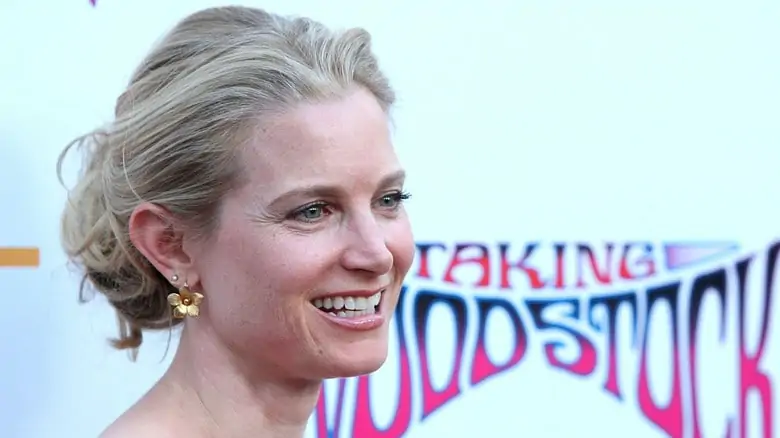With her quick wit, girl-next-door appeal, and a last name that shouts “Hollywood legacy,” Bridget Fonda’s success on the big screen seemed inevitable.
And Fonda’s career was the very definition of wonderful from the late 1980s into the 1990s as she waltzed through gripping thrillers (Single White Female), heartwarming rom-com (It Could Happen To You), and fantasy fare (Frankenstein Unbound).
Fonda hasn’t had an appearance in a single movie or TV show since 2002. We have a few answers for you if you’re one of the many fans who are wondering where she went.
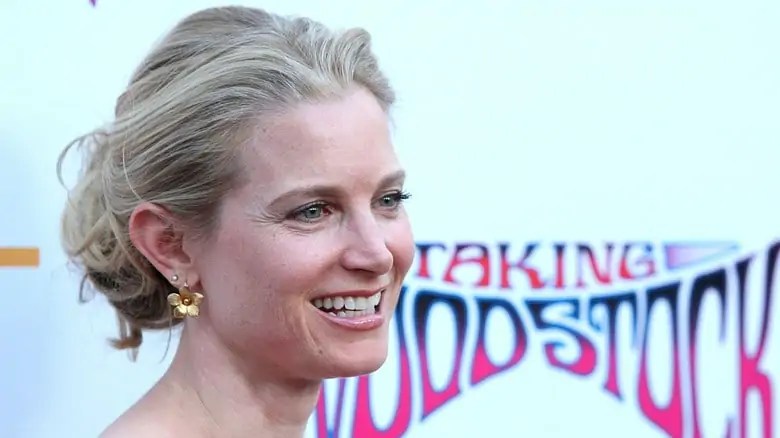
A simple case of too much, too soon
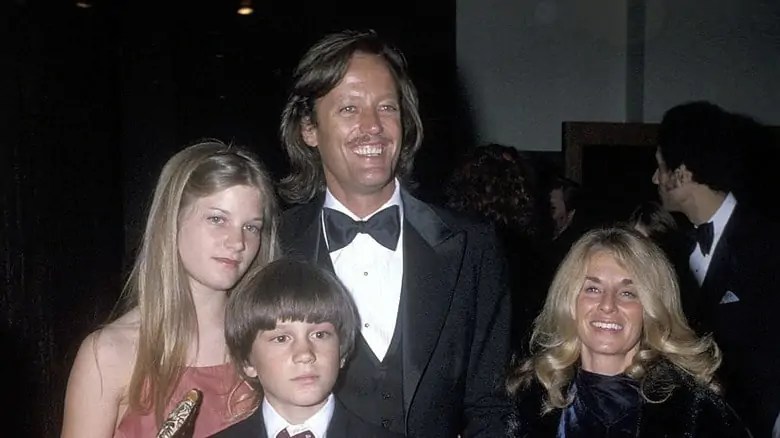
Fonda’s family name practically demanded a breakthrough on the big screen. Even though she made her acting debut in Easy Rider at the ripe old age of five in an uncredited role as one of the commune kids, it wasn’t until she landed a part in a school production of Harvey that she truly caught the acting bug.
After graduating from NYU’s Tisch School of the Arts and the Lee Strasberg Theater Institute with a degree in theater in 1986, Fonda immediately entered the high life of Hollywood.
The 1987 Cannes Film Festival favorite Aria was where Fonda made her debut with credit. Both critics and viewers praised her performance, and the movie served as Fonda’s stepping stone to fame. After giving great supporting performances in the 1989 movies Shag and Scandal, she went on to star in the 1990s The Godfather III, which further raised her fame. She later proved she could handle comedy with her role in Doc Hollywood.
The ‘it girl’ problem
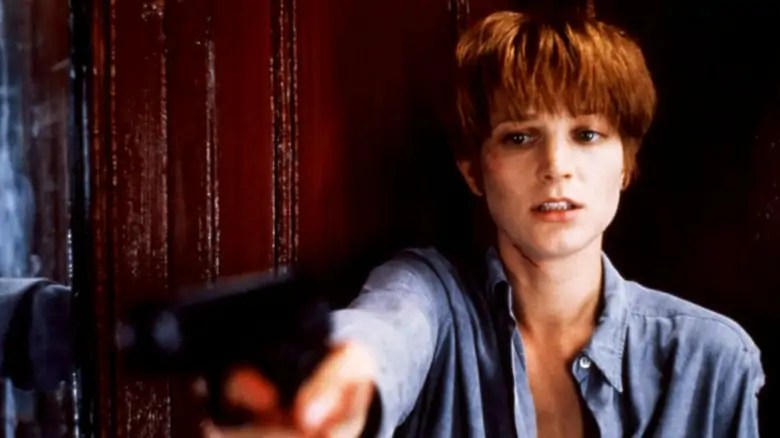
With parts in the critically praised Cameron Crowe dramedy and the smash thriller Single White Female, along with her uncredited appearance in 1992’s Army Of Darkness, Fonda continued to be in high demand during the early 1990s.
It seemed as though there was no genre she couldn’t handle. She was equally at ease playing roles that were cool and hip, vulnerable and lovely, or smart and seductive. She could, however, handle gory, bloody mayhem. Yes, she could generate good box office figures as well; the debut of Single White Female alone brought in close to $50 million.
With that level of success, Fonda’s “it girl” reputation was inevitable, and while it placed her in some excellent early ’90s company with celebrities like Julia Roberts and Meg Ryan, it also comes with high expectations.
The peaks (Point Of No Return, Jackie Brown) and valleys (The Road To Wellville, The Whole Shebang) proved to be too much for Fonda to bear, despite her consistent work throughout the years that followed. Her career slowed down in the late 1990s, and as many other celebrities will attest, it’s challenging to restart a sluggish career.
She worked a lot over a short period of time
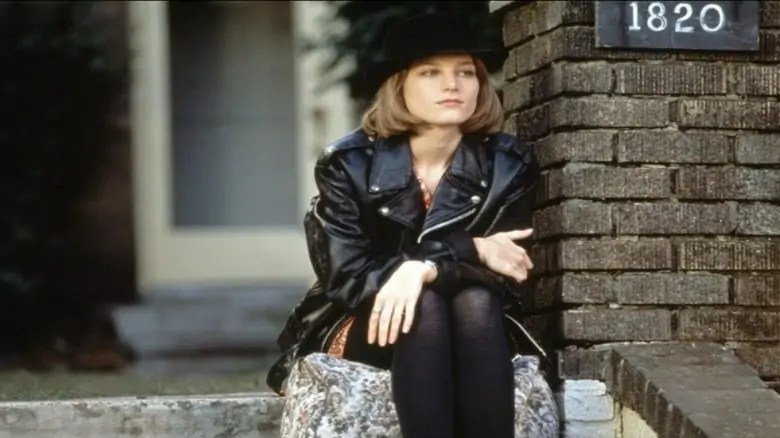
We might speculate as to why Fonda withdrew, but we can’t say she didn’t make the most of her moment in the spotlight. She typically produced three to four films a year between 1987 and 1998, totaling more than 30 during a rather little time frame.
It’s simple to envision that Fonda simply burnt out with that kind of pressure. Who could blame her, though? After all, each and every one of those projects had its own pre- and post-production preparations, in addition to the actual production time.
For about 11 years straight, Fonda worked constantly. Sincere to say, the very concept of that job schedule causes our heads to spin. We can only speculate as to what impact it had on Fonda.
TV didn’t pan out
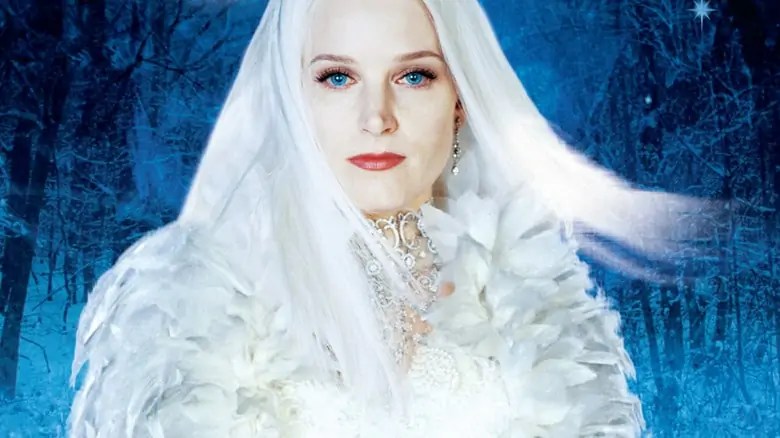
Fonda was chased by television producers for years; in fact, she declined the main role in Ally McBeal in 1999 so that she could concentrate on her film career. It’s difficult to question that choice; after all, Ally McBeal only lasted five seasons and didn’t exactly launch Calista Flockhart, the show’s lead, into a career as a movie star. However, one can’t help but question if Fonda might have benefited by appearing in a series.
Her television endeavors, on the other hand, weren’t particularly successful. In addition to appearing in the TV movies No Ordinary Baby and Snow Queen, she played a supporting role in the great but poorly-rated Chris Isaak Show. Since the latter project’s December 2002 launch, Fonda hasn’t taken part in any movies or television shows.
The Hollywood machine took its toll
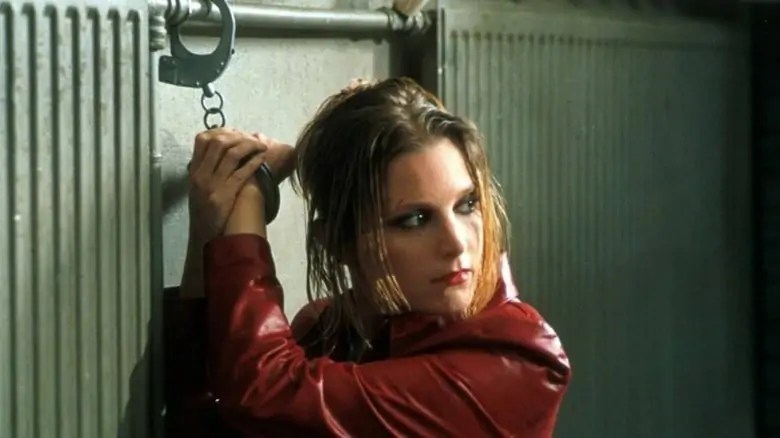
Of course, Fonda might have had further justifications for leaving. It’s not simple for women to secure jobs in Hollywood, and when you consider how the business treats women over 40 and the stress of keeping a reputation, it’s easy to understand why Bridget Fonda didn’t see much of a future in acting.
She left Hollywood at the age of 38 with 49 film and TV credits under her belt, having established her acting prowess and success as a box office draw. Why not escape the stardom’s pressure vacuum before it escapes her?
Who’s to say, too, that Bridget Fonda won’t return to the red carpet at some point? For evidence that Hollywood adores a successful comeback, just look at Bridget’s father.
The elder Fonda labored in mediocre B-movie fodder for the majority of the 1970s, 1980s, and 1990s after making a name for himself in the 1960s. He didn’t regain favor with Hollywood until his role in 1997’s Ulee’s Gold, for which he was nominated for an Oscar.
A challenging, supporting role on a fantastic Netflix or Amazon series might be just the thing to get Bridget back in front of the camera in this new golden age of television, though we’re sort of holding our breath that Elfman might pull a few strings to get her cast in one of the upcoming projects from his frequent collaborator, director Tim Burton. For example, Beetlejuice 2. Who wouldn’t want to watch Fonda and Winona on the same screen?


